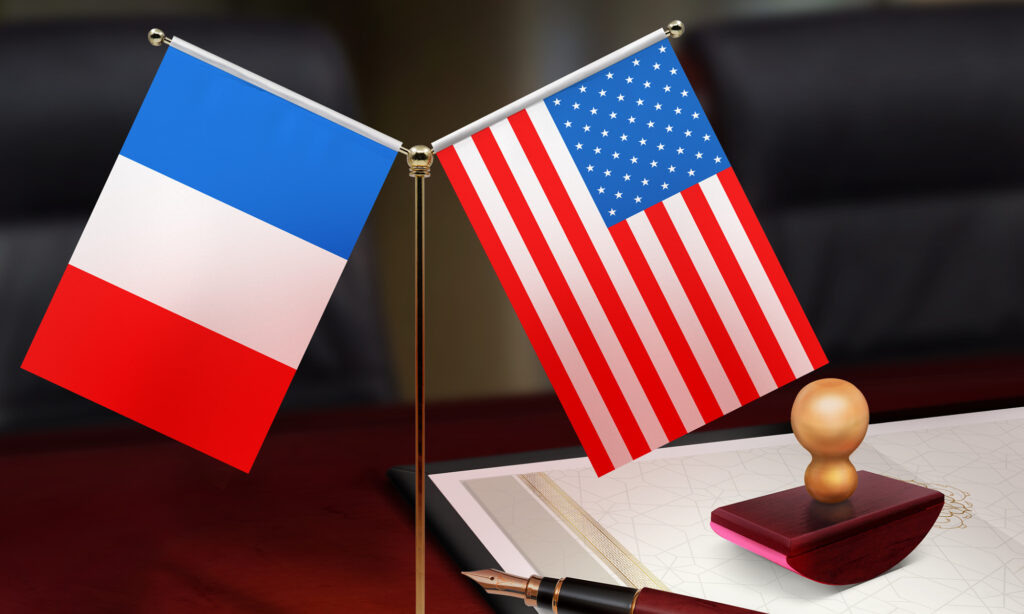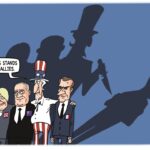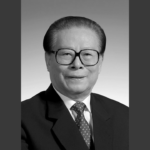Stable and rational China policy crucial for EU: experts
Before Macron made its first state visit to the US since Biden took office, European media expected the visit to be an opportunity to ease anger in Europe over the Inflation Reduction Act (IRA), which will cost European jobs in the energy and vehicle sectors. However, based on the statement which barely covered divergences, it showed that their differences are still wide and the US has obviously assumed a sense of supremacy which made their seeming unity fragile, analysts said.
Even hyping up the “threats” of other countries could not disguise the irreconcilable conflict between Europe and the selfish US. And Macron’s possible visit to Beijing after leaving Washington may make the French president more aware of the importance of a stable and rational China policy to France’s interests, they said.
Li Haidong, a professor from the Institute of International Relations at the China Foreign Affairs University in Beijing, told the Global Times that hyping the “China challenge” will not help the US, France, or the EU resolve their tensions. The US wants to create a rivalry, forcing all sources to flow to the US and sacrifice the interests of its allies to suit the US strategic appeal.
The Biden administration’s IRA is a $369 billion package for green industry that offers massive subsidies for US-made products and could drain investment out of the EU and into the US. Meeting with US lawmakers on Wednesday, Macron said the act was “super aggressive” toward European companies, France 24 reported.
In response to a question by the Global Times on Macron’s comment on US’ Inflation Reduction Act and the CHIPS and Science Act at the regular press conference on Friday, Zhao Lijian, a spokesperson of the Chinese Foreign Ministry, said that the US Inflation Reduction Act is “designed to serve its own interests, shows no regard for other countries, not even its so-called allies and partners.”
“This is yet another example of the US’ domineering America-first approach,” Zhao said. “The US calls Europe an important ally. But in reality, the US is letting Europe pay the price in the crisis.”
As the US profiteers from the Ukraine crisis, Europe is bleeding from high inflation and soaring energy prices. Even today, Europe is still cleaning up the mess left behind by the US in Syria, Afghanistan and Iraq… It is not surprising that European press said Europeans need to ask themselves why our peace and prosperity should be dependent on American interests. This is indeed a question that Europe and the rest of the world need to be serious about, Zhao said.
Unsolved problems with ‘no apology’
Biden hailed the US-France relationship with words like “close friends”, “oldest ally,” and “unwavering partner” in his welcoming speech to Macron, and served his French counterpart with lobster, caviar and an Oregon cheese at the US president’s first state dinner on Thursday, according to US media reports. However, the process of finding a solution to the trade rift regarding US’ anti-competitive IRA was not as satisfactory as the meal.
Before Macron’s trip, French media listed the top five points on the agenda that Macron and Biden could talk about: the Ukraine crisis, energy, a potential US-EU trade war, China, and climate change. Politico said Macron’s visit had been seen as a “doomed last-ditch effort to secure a truce over Washington’s largesse before the EU and US lurch into a subsidy race or full-blown trade war with countervailing tariffs.”
In the joint statement released by the White House, besides well-marked paragraphs on security including the reaffirmation of their commitment to Ukraine, there was only one sentence about the IRA, stating that leaders “look forward to the work of the US-EU Taskforce on the Inflation Reduction Act to further strengthen the US-EU partnership on clean energy and climate through mutually beneficial ways.”
The statement involved multiple topics including transatlantic, European and global security; economy, emerging technologies, trade, and supply chains; space, energy, global health, human rights, as well as cyber disinformation.
The lack of mention of the burning issues of concern means that there is not much agreement between the two sides, and the differences are wide, Cui Hongjian, director of the Department of European Studies at the China Institute of International Studies, told the Global Times on Friday.
During Thursday’s joint press conference, Biden said the US makes “no apologies” for the IRA, but admitted there were “some glitches” and changes that may need to be made to the law.
Li Haidong believed that the joint statement is the product of the two sides’ coordination and negotiations, but the US has seemingly assumed supremacy.
Ahead of his meeting with Biden, Macron criticized the Biden administration’s subsidies for US companies in Washington on Thursday, warning that the policy could “fragment the West,” media reported, noting that Macron stressed that European leaders remained “deeply concerned” about the IRA, which is hurting European companies by offering an unfair advantage to their US competitors.
In November, Robert Habeck, Germany’s economy minister, also expressed opposition to the IRA, speaking of a looming “trade war.”
“The US’ act is a kind of trade protectionism that will harm EU industry… But the US is unlikely to modify subsidies because the US will continue to abuse the EU,” Li said.
France and Germany want to put pressure on the US, but given the delicate US domestic situation, even if Biden did try to make some kind of concession, there would be criticism from Republicans and even Democrats, Cui said.
Without real progress at the working level, Europe is very likely to continue to make tit-for-tat responses, Cui added.
Stabilization and repair
The joint statement said that the US and France will continue to coordinate on “concerns regarding China’s challenge to the rules-based international order.” It also said that the two sides support the “diversification of Europe’s natural gas supply, including through US liquefied natural gas exports.”
In response, Chinese Foreign Ministry spokesperson Zhao Lijian said on Friday that China is not against the US and France growing state-to-state relations, but this should not come at the expense of the interests of a third party, nor should China be made an issue in this.
“China is certainly not a challenge, but an opportunity for the world,” Zhao said.
The US has rapidly increased exports of liquefied natural gas to the EU, but at a high price, as many European countries are facing severe energy shortages, which has incurred discontent from EU leaders. In October, at a press conference in Brussels following a meeting with other EU leaders, Macron slammed the US for creating “a double standard” by selling natural gas to Europe “at record prices,” Bloomberg reported.
Developing ties with China is actually the better way for the EU to reduce its dependency on the US and diversify its economy. However, the US has recently increased its attempts to force the EU to stick to its anti-China fleet, an anonymous Beijing-based expert told the Global Times on Friday.
In fact, amid the EU-US rift, Europe and China are trying to bridge their differences and repair relationships. At almost the same time as Macron was meeting with Biden, Chinese President Xi Jinping and visiting President of the European Council Charles Michel on Thursday vowed to strengthen strategic communication and cooperation while properly managing differences during their meeting in Beijing.
On November 4, Xi met with German Chancellor Olaf Scholz on his official visit to China in Beijing. The two leaders agreed to enhance cooperation and maintain dialogue, reject decoupling and bloc confrontation, and vowed to further expand cooperation and increase mutual political trust for a stable relationship.
“China develops relations with Europe, not against other great power relations, just as we do not want the US to wield Europe against us,” Cui said.
Europe is seeking a balance between China and the US, which reflects a more complex multi-polarized world, and may become the norm in the future, Cui said.
The clamor for greater strategic autonomy is growing in the EU, and leaders in the bloc should demonstrate greater political wisdom in order to maintain a balance between ties with China and the US and to maximize the EU’s interests and stability, Li said.
Stability is the most important thing for China-EU relations at the current stage, after the tensions of recent years, Li said, noting that stability, repair and renewal are the main themes for the future of China-EU ties.
(Global Times)




